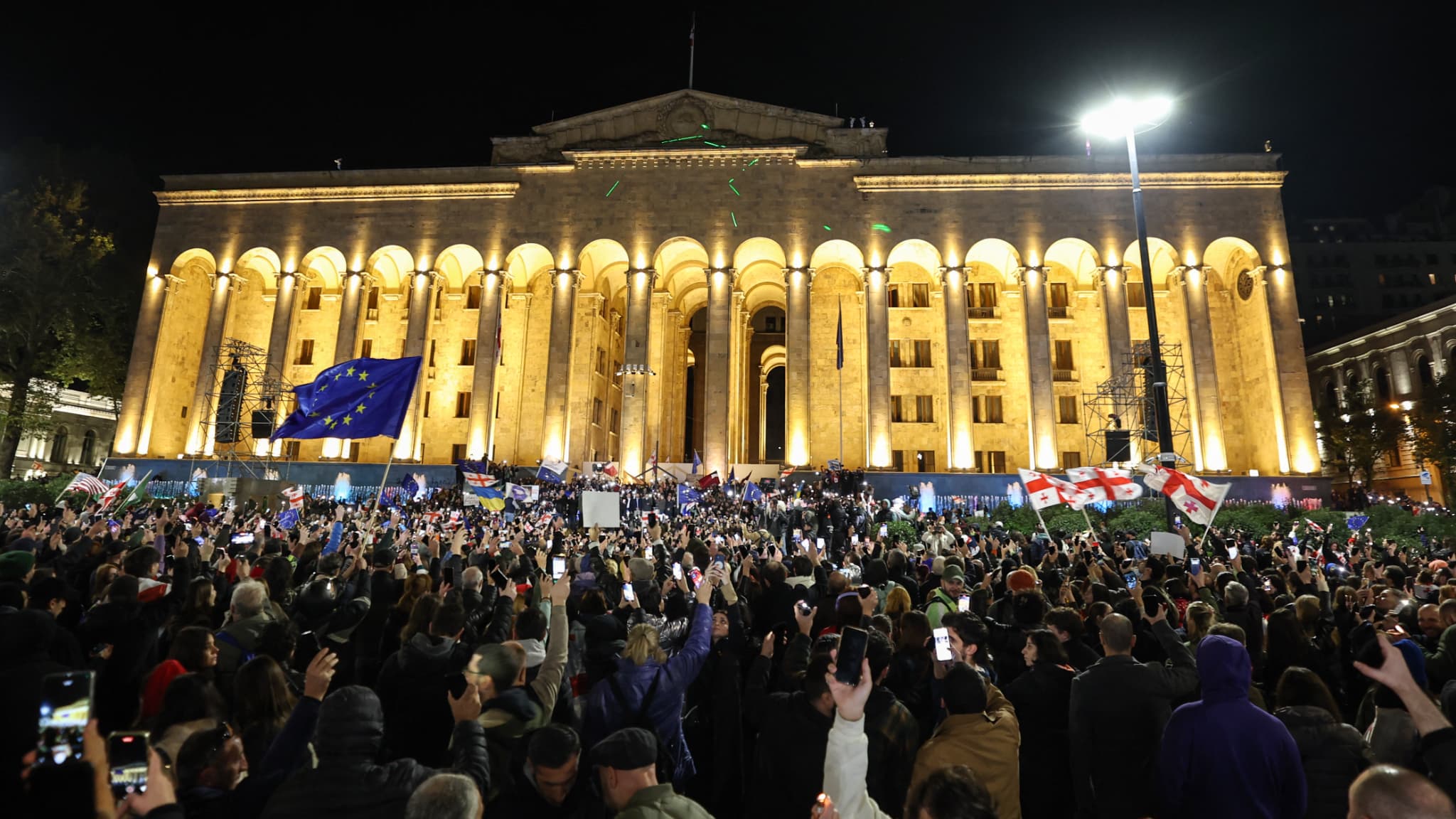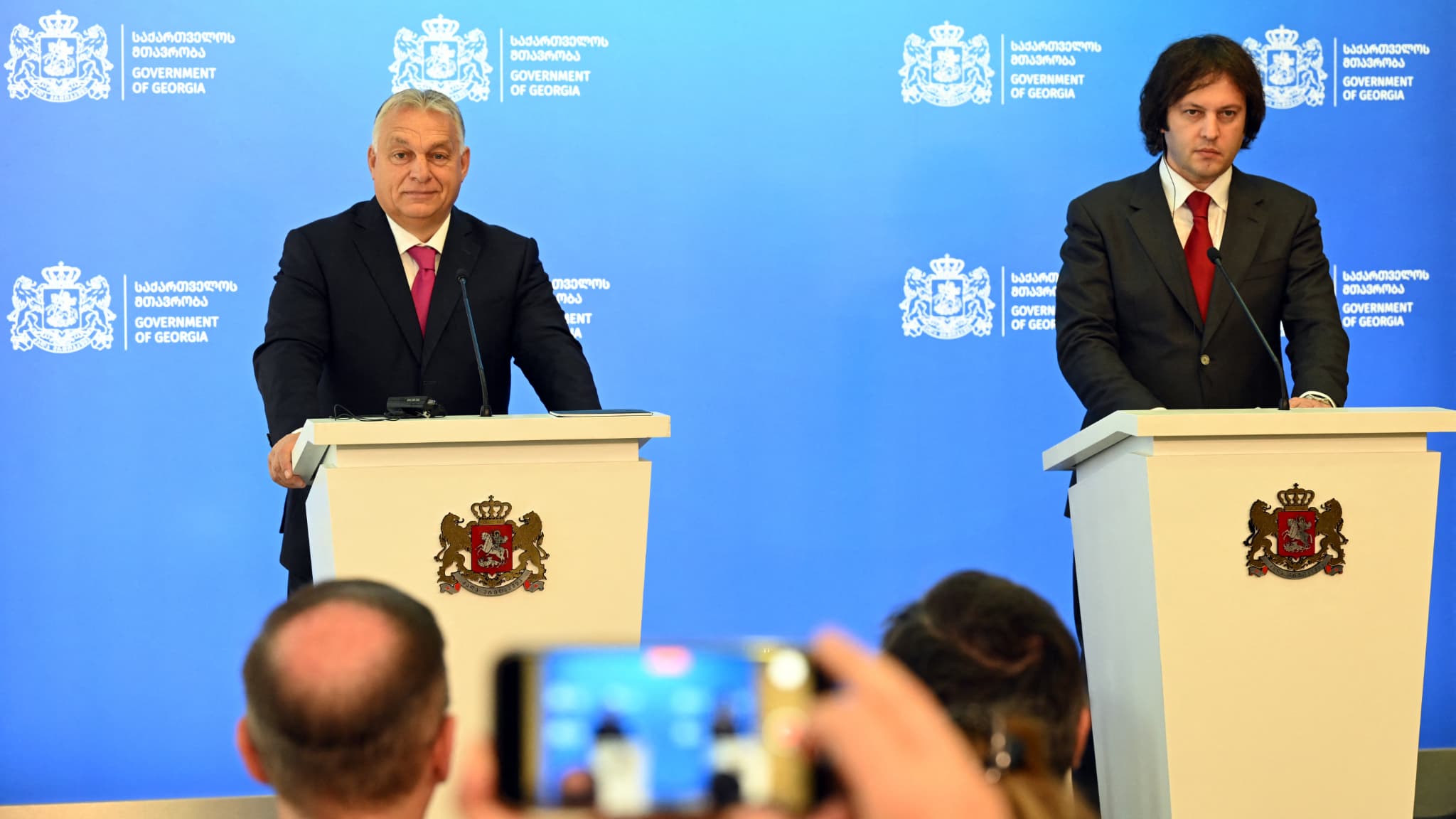This Tuesday, October 29, Hungarian leader Viktor Orban, close to Vladimir Putin and a dissident voice within the European Union, came to support the current regime in Georgia, accused by its detractors of a pro-Russian authoritarian drift. Indeed, since last Saturday and following the results of the Georgian legislative elections, the pro-European opposition has accused the ruling party that claimed victory of fraud.
Since this weekend, the European Union, the United States and international observers also denounced “pressure” during the vote. The opposition thus considers that the elections were “stolen” and refuses to recognize the results.
Brussels and Washington had explicitly asked Tbilisi to open investigations into these accusations of “major irregularities.” In this context, a new partial recount of votes must be organized this Tuesday.
Georgian authorities “will conduct a recount of votes at five randomly selected polling stations in each electoral district,” the Electoral Commission announced. According to the almost final results, Georgian Dream obtains 53.92% of the votes, compared to 37.78% for the opposition coalition.
Viktor Orban in Tbilisi in support of the current regime
This announcement comes at a time when Hungarian leader Viktor Orban begins, this Tuesday, October 29, his second day of an official visit to Tbilisi to show his support for the government, a snub to the EU of which Hungary currently holds the rotating presidency. .
On Tuesday morning, Viktor Orban celebrated Georgian Dream’s victory in an election he called “free and democratic.”
“I congratulate you for having voted for peace” and “for not allowing your country to become a second Ukraine,” said Viktor Orban, the only EU leader to welcome the results. “If the liberals had won,” Brussels “would say it’s democratic,” he said provocatively. On Saturday he spoke of a “landslide victory” for the ruling party.
This unexpected move provoked the ire of several European and Brussels foreign ministries. Viktor Orban “does not represent the European Union,” he attacked the head of European diplomacy, Josep Borell, on Monday.
For their part, the foreign ministers of 13 EU member states, including France, Germany and Poland, “criticized” in a press release the “premature” trip of the head of the Hungarian Government.
At the request of the opposition and Georgia’s pro-European president, Salome Zourabichvili, breaking with the government, tens of thousands of Georgians demonstrated peacefully on Monday afternoon in Tbilisi to denounce the result of the legislative elections.
“Count our votes”
To the sound of the EU anthem, protesters brandished Georgian, European and sometimes Ukrainian flags, AFP journalists noted. In an interview with AFP, Salomé Zourabichvili had denounced a few hours earlier “sophisticated” fraud methods, similar, according to her, to those practiced in Russia. The spokesman for the Russian presidency, Dmitri Peskov, rejected the “unfounded accusations” and refuted any interference by his country in the electoral process.

His opponents accuse Georgian Dream of steering the country towards Moscow and away from the goal, enshrined in the Constitution, of joining the EU and NATO.
Given the emerging controversy, Prime Minister Irakli Kobakhidzé assured on Monday that Tbilisi’s “main priority” continues to be “European integration” and said he “expects a restart of relations” with Brussels, after the tensions of recent months.
Brussels froze the EU accession process in the spring after enacting a controversial “foreign influence” law, inspired by Russian legislation used by the Kremlin to crush civil society.
The United States, for its part, adopted sanctions against Georgian officials for their “brutal repression” during the protests that followed.
Source: BFM TV


